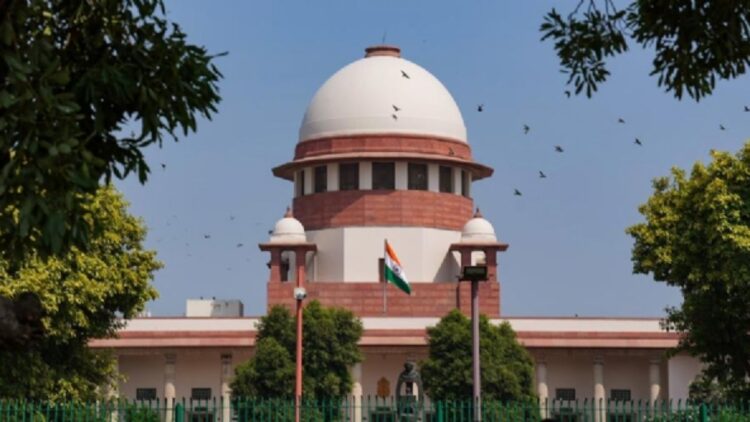Supreme Court
There is a storm in the country these days about the Waqf law. Many opposition parties and Muslim organizations are opposing this law and performing peacefully. Meanwhile, Muslim organization Jamiat Ulama-e-Hind has reached the Supreme Court regarding this matter. Let us know that before this, many opposition parties and Muslim organizations have reached the Supreme Court to challenge this law.
Violation of fundamental rights
Maulana Syed Mahmood Asad Madani, President of Jamiat Ulama-e-Hind in the Supreme Court, has filed a PIL against the Waqf (Amendment) Act 2025, which has challenged the constitutionality of the law. Please inform that the Waqf law has been made effective across the country since 8 April 2025 after the President’s seal. In the petition, Jamiat has said that the law has been violated in this law, not one but many articles of the Constitution of India, especially Articles 14, 15, 21, 25, 26, 29 and 300-A, a severe violation of the fundamental rights found under Articles 14, 15, 21, 25, 26, 29 and 300-A, which is a serious threat to religious and cultural rights and identity of Muslims.
Demand from Supreme Court
Maulana Madani further said in the PIL that this law is not only unconstitutional but a product of majority mindset, which aims to destroy the centuries -old religious and welfare structures of Muslim society. This law is a flag bearer of discrimination in the name of corrective initiative and is a threat to the country’s secular identity. The petition demanded the Supreme Court to declare the Waqf (Amendment) Act 2025 unconstitutional and stop its implementation immediately.
Mansoor Ali Khan is lobbying
Please inform that Maulana Madani is being advocated in this case, Advocate on Record Mansoor Ali Khan. Maulana and Advocate Niaz Ahmed Farooqui, the patron of Jamiat Ulama-e-Hind, said that Jamiat Ulama-e-Hind has also consulted the major senior lawyers.
Maulana Madani has laid down in his petition that the Act has been largely intervened in the definition, operation and management system of the country, which is contrary to Islamic religious traditions and judicial principles. The petition states that these amendments are based on maliciousness which have been made with the aim of weakening the Waqf institutions.
Laws stated in law
He has also mentioned several shortcomings of this law in this petition, including that now only the person can do Waqf (donation of assets) who have been a Muslim practicing for 5 years. There is no example of this condition in any religious law, along with the condition that the wakf will also have to prove that it is not a part of a conspiracy, it is a legal point of useless and it is a violation of Article 14 and 15 of the Constitution.
In addition, the end of the Waqf by-UGer poses a threat to religious places that have historically achieved the status of Waqf with frequent use of people. Their number is more than 4 lakhs. After the implementation of this law, these properties are in danger and it has become easier for governments to capture them. Similarly, the inclusion of non-Muslims in the central and state Waqf Councils is clearly a violation of Article 26, which gives the right to religious affairs to manage religious affairs.
Also read:
‘We are going to challenge the Waqf Act 1995’, lawyer Vishnu Shankar Jain made a big announcement
What did Kapil Sibal say on the extradition of terrorist Tahawwur Rana? UPA government praised for NIA
Latest india news








